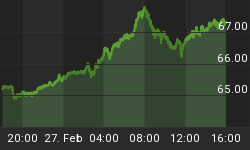As crazy as this may sound, not all employment is good employment. Today's labor department release of a larger than expected 262,000 increase in February non-farm payrolls, heralded by Wall Street as evidence of a vibrant U.S. economy, actually confirms the reverse: a dangerously imbalanced economy moving further off kilter.
The over-bloated service sector added another 207,000 jobs, with construction, no doubt mostly residential, adding 30,000. The beleaguered manufacturing sector did manage to add 20,000 jobs for a change, though half of that gain resulted from temporarily laid off auto workers returning to their job. In other words, the wealth producing sector of the economy added few workers, while the wealth consuming sector provided over 80% of new jobs.
The basic problem with service sector jobs is that they produce few tradable goods. As a result, the added incomes associated with such jobs create upward pressure on our nation's trade deficit, as service sector workers use their additional incomes to buy more imported products. In addition, such jobs provide more workers with the means to qualify for home mortgages, which require additional borrowing from abroad, and provide the basis for future cash-out refinancing, requiring still more foreign financing and resulting in additional purchases of imported products.
In other words, the last thing the U.S. economy needs is more non-productive service sector jobs, which only lead to higher trade deficits as Americans import more goods that service sector workers do not produce, and larger current account deficits, as greater interest payments become necessary to service growing external liabilities.
While this reality may have been lost among U.S. investors, who reacted foolishly by buying stocks, it was not the case among currency traders, who despite their initial, almost reflexive action to buy dollars on apparent "good" economic news, quickly re-evaluated the data and sold, sending the buck sharply lower against all the world's major currencies, and to a new twenty-three year low against the New Zealand dollar. Is this simply a case of buying the rumor and selling the fact, or is it an actual epiphany on the part of currency traders with respect to their understanding of the true nature of the fundamentally flawed American economy? If it is indeed the latter, our bubble economy may have finally found its pin.















